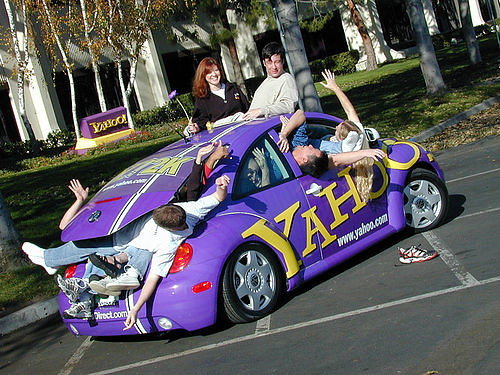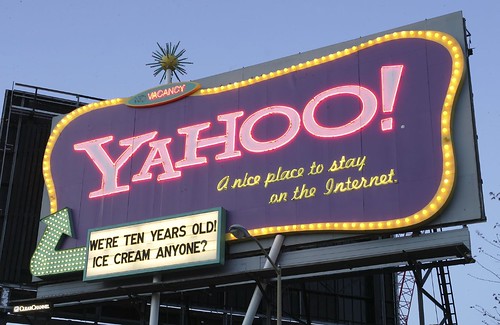Coinbase advertises during Super Bowl
On Monday afternoon, the buzz amongst my colleagues in New York was the Super Bowl from the night before. In particular the advertising and one advert by Coinbase sparked more discussions than others. The advert was divisive. Some people that there was something wrong with their smart TV which had triggered a dodgy screensaver. One person even first thought that the QRcode would take them through to a site that might explain whatever ransomware had hijacked their TV.
They scanned the QRcode but it didn’t work properly. The reasons for it not working were twofold:
- The contrast in the QRcode background and foreground wasn’t large enough for certain colours and so wouldn’t scan
- The coinbase website fell over. This would be spun as unprecedented demand, but the reality was poor execution
A game console style ROM screen revealed at the end that it was Coinbase. The management would likely pass the whole car crash off as growth hacking.
Growth hacking
Growth hacking as a term was attributed to a blog post by Sean Ellis back in 2010. But as a concept it goes back much further. A classic example of growth hacking could be considered to be FMCG staple of ‘buy one, get one free’ or BOGOF. The master of the growth hack was David Wallerstein came up with the idea of supersizing popcorn servings in the 1960s. Wallerstein came up with a behavioural change experiment as business idea based on the insight of that people might want to buy and eat more popcorn, but were simply ashamed of buying two bags at the cinema. Wallerstein was successful in his experiment. Wallerstein was appointed by Ray Kroc to the board of McDonalds in 1968 and then rolled out larger servings in McDonalds restaurants, if you’ve ever been asked if you want a ‘large meal’ with your burger Wallerstein was responsible. This created a whole range of products in restaurants and supermarkets called expandables, from large meals to multi-packs of products.
A more recent example would be the signature on hotmail.com emails that encouraged whoever received them to get their own email address at hotmail.com. This was effective back when most people had a work or college email address and wanted a home account for personal communications like finding a new job. Gmail took a slightly different approach with an invite scheme that saw early adopters clamouring like they were trying to get in the door of Studio 54 on a Saturday night.
The original idea of growth hacking is to try a small marketing tactic and refine it based on the feedback that you get. In reality that gets translated into poor thought out showy tactics focused on the short term. The reason for this is that test and learn is done over a short time period and doesn’t incorporate marketing science. The Coinbase advert was a classic example of this.
Buzz marketing
Growth hacking is influenced by a number of things. One of which was the concept of ‘scrappiness’ in start-up marketing.
Startup scrappiness
During the original dot com boom new online businesses wasted a fantastic amount of money on ineffective advertising. The most iconic example of this would be the pets.com sock pocket advert that featured in the 2000 version of the Super Bowl.
You saw some businesses like Yahoo! try to do brand building advertising in a more cost effective way. This was known internally at Yahoo! as buzz marketing and in the US, it had its own team.
Examples of buzz marketing included wrapping employees cars that had been volunteered in the Yahoo! brand. This was listed in the employee handbook as a free ‘perk’ of working at Yahoo!. There were some conditions like you had to keep the wrap on for year and a good behaviour clause.
There were also some sponsorships like the ice machine at the San Jose Sharks stadium and some high traffic billboards. Yahoo! used to have a billboard alongside the 101 freeway going into San Francisco and another in Time Square, New York.
While the lesson of ‘go for business models that make financial sense’ seems to have been lost as we left the dot.com era further behind. The idea of ‘scrappiness’ stuck. It fitted with the wider concept of ‘struggle culture’ in entrepreneurship.
In technology, marketing = sales
On one level, the problem isn’t Coinbase but the technology sector. The truth is that for the most part technology companies don’t do good marketing. My hypotheses around the reasons for this are:
- Technologists aren’t marketers. For the original technology firms, the products found their own market. Over time a salesforce was introduced and for complex products there might be pre-sales and post sales consultancy. They don’t really know much about marketing science. The sales funnel is the one ‘marketing model’ that managed to make it into Microsoft® PowerPoint® says a lot about the nature of this understanding.
- To a technologist, every problem looks like a technology challenge. So the answer for great marketing is either in kludges aka hacks, like the Coinbase advert, or algorithmic in nature. And those algorithms are usually based on a poor understanding of marketing featured in the point above
- Technologists think short term. Brands are transitory if you are looking to be bought out, or are built ‘organically’ in the hands of the victors (Oracle, Microsoft, Alphabet, Meta, Apple, Amazon, Tencent or Alibaba). So building a brand is an alien concept. Why build a brand in a world when you believe in disrupt, or be disrupted? Contrast that with the FMCG world where brands have considerably longer lives. The Nestlé Kit Kat chocolate bar is 86 years old at the time of writing. Procter & Gamble’s Bold washing powder (laundry detergent) is a spritely 57 years old. Baileys Irish Cream liqueur is 48 years old, as is the Mobil 1 range of synthetic engine oils, oil filters, chassis grease, transmission fluids, and gear lubricants. If we think of technology brands with that kind of longevity its likely to be the incumbent telecoms companies, Fujitsu, Hitach and IBM. At the younger end would be the likes of Verbatim, AMD, Intel, Oracle, Western Digital, Microsoft, Apple, Acer and Atari.
- Disrupt or be disrupted creates delusion. If you believe in the disrupt or be disrupted manifest destiny of technology you probably believe that your ability to market is better than established brands that are actually marketing organisations
I would guess that Coinbase marketers would tick at least some of these hypotheses. It probably doesn’t help that organisations who should know better are starting to buy into this ‘disrupt or be disrupted’ model.
Cost of reach
So, if you’re a technology company like Coinbase, who believes in disruption and ‘knows’ how to market better than marketers? The simple answer is that while digital has managed to get marketers to use its platforms, it has failed to offer the most competitive cost per reach. To achieve the same goals Coinbase would have had to spend an order of magnitude more on YouTube than TV to reach an equivalent audience.
Brand building
Finally the reason why the advert contrasted so sharply with the other content that ran during the Super Bowl was because everyone else focused on brand building rather than on brand activation. The reason why they are going for brand building is that the work will keep paying dividends for years. This is something that digital transformation doesn’t reflect well through its algorithms. The Coinbase approach was the equivalent of a TV ad that said click here.
More information
Find a Growth Hacker for Your Startup | Startup Marketing (July 26, 2010)



